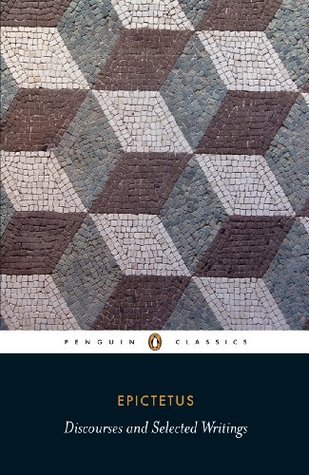More on this book
Community
Kindle Notes & Highlights
Make the best use of what is in our power, and treat the rest in accordance with its nature. And what is its nature? However God decides.
Man, the rational animal, can put up with anything except what seems to him irrational; whatever is rational is tolerable.
In short, we do not abandon any discipline for despair of ever being the best in it.
Make it your goal never to fail in your desires or experience things you would rather avoid; try never to err in impulse and repulsion; aim to be perfect also in the practice of attention and withholding judgement.
But anyone whose sole passion is reading books, and who does little else besides, having moved here for this – my advice for them is to go back home immediately and attend to business there, [23] because they left home for nothing. A student should practise how to expunge from his life sighs and sorrow, grief and disappointment, exclamations like ‘poor me’ and ‘alas’; [24] he should learn what death is, as well as exile, jail and hemlock, so at the end of the day he can say, like Socrates in prison, ‘Dear Crito, if it pleases the gods, so be it,’5 – instead of, ‘Poor me, an old man – is this
...more
For what else are tragedies but the ordeals of people who have come to value externals, tricked out in tragic verse?
Your time here is short enough, and easy to endure for people of your convictions. No despot, thief or court of law can intimidate people who set little store by the body and its appurtenances. So stay, don’t depart without good reason.’
‘If we saw things differently we would act differently, in line with our different idea of what is right and wrong. [31] This, then, was the cause of Achilles’ lamentations – not the fact that Patroclus died, since other people don’t carry on so when a friend or companion dies – but the fact that he chose to lament. [32] The same cause lies behind your desertion of your daughter – you thought it was a good idea at the time. Conversely, if you stay with her, it would be for the same reason. Now you are about to return to Rome; that is your decision – but if it changes, you won’t go. [33] In
...more
Can we avoid people? How is that possible? And if we associate with them, can we change them? Who gives us that power? [19] What is the alternative – what means can be found for dealing with them? One that ensures that we remain true to our nature, however other people see fit to behave. [20] That’s not what you do, though. No, you gripe and protest against circumstance. If you’re alone, you call it desolation, if you’re in company you describe them all as swindlers and backstabbers; you curse your own parents, your children, your siblings and neighbours. [21] When you are by yourself you
...more
You should thank the gods for making you strong enough to survive what you cannot control, and only responsible for what you can. [33] The gods have released you from accountability for your parents, your siblings, your body, your possessions – for death and for life itself. [34] They made you responsible only for what is in your power – the proper use of impressions. [35] So why take on the burden of matters which you cannot answer for? You are only making unnecessary problems for yourself.
‘Be confident in everything outside the will, and cautious in everything under the will’s control.’
Death and pain are not frightening, it’s the fear of pain and death we need to fear. Which is why we praise the poet who wrote, ‘Death is not fearful, but dying like a coward is.’
What else is freedom but the power to live our life the way we want? ‘Nothing.’ Do you want to live life doing wrong? ‘No.’ Therefore, no one doing wrong is free. [24] Do you want to live your life in fear, grief and anxiety? ‘Of course not.’ So no one in a state of constant fear is free either. By the same token, whoever has gained relief from grief, fear and anxiety has gained freedom.
So in life our first job is this, to divide and distinguish things into two categories: externals I cannot control, but the choices I make with regard to them I do control. Where will I find good and bad? [5] In me, in my choices. Don’t ever speak of ‘good’ or ‘bad’, ‘advantage’ or ‘harm’, and so on, of anything that is not your responsibility.


